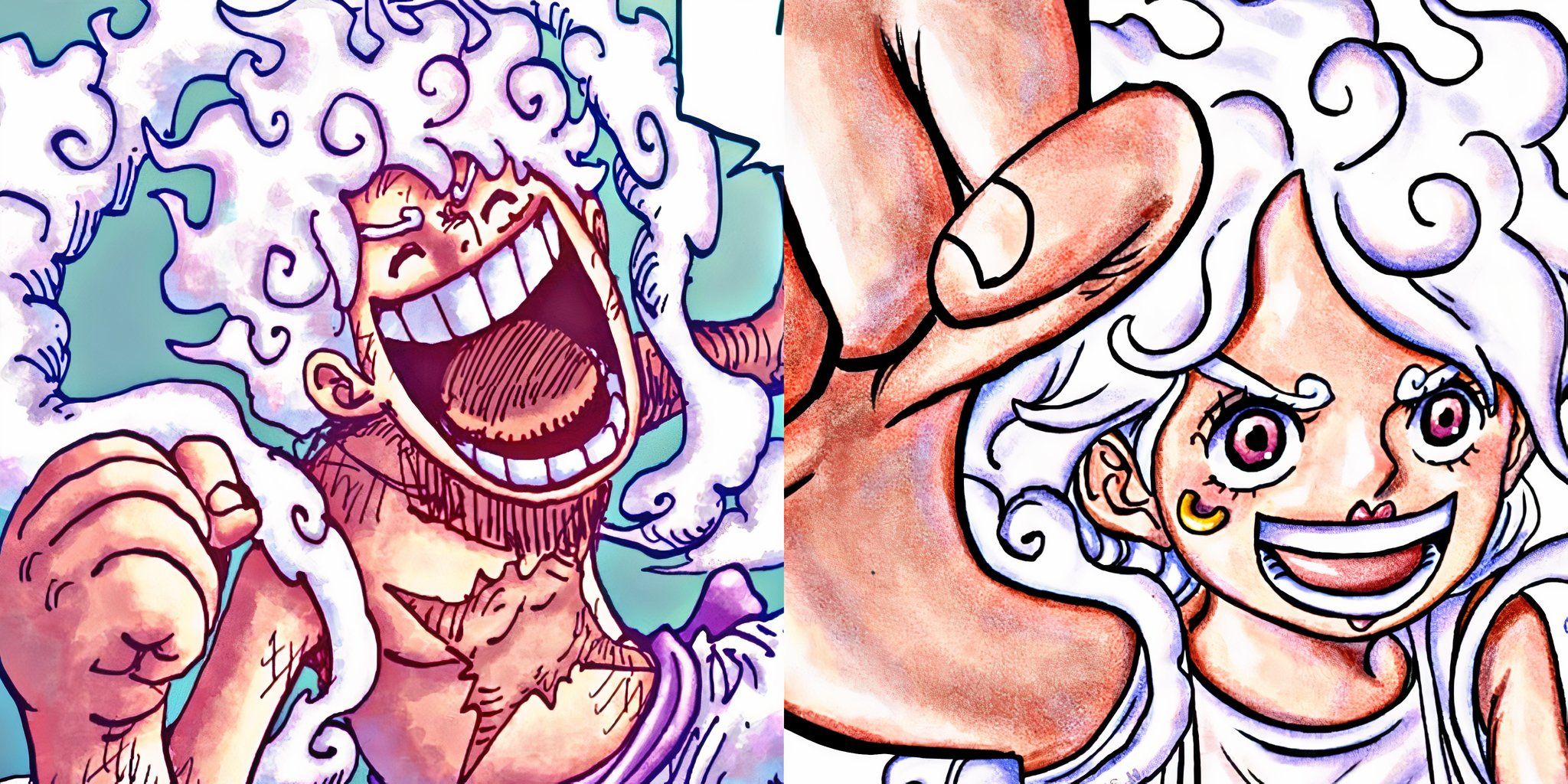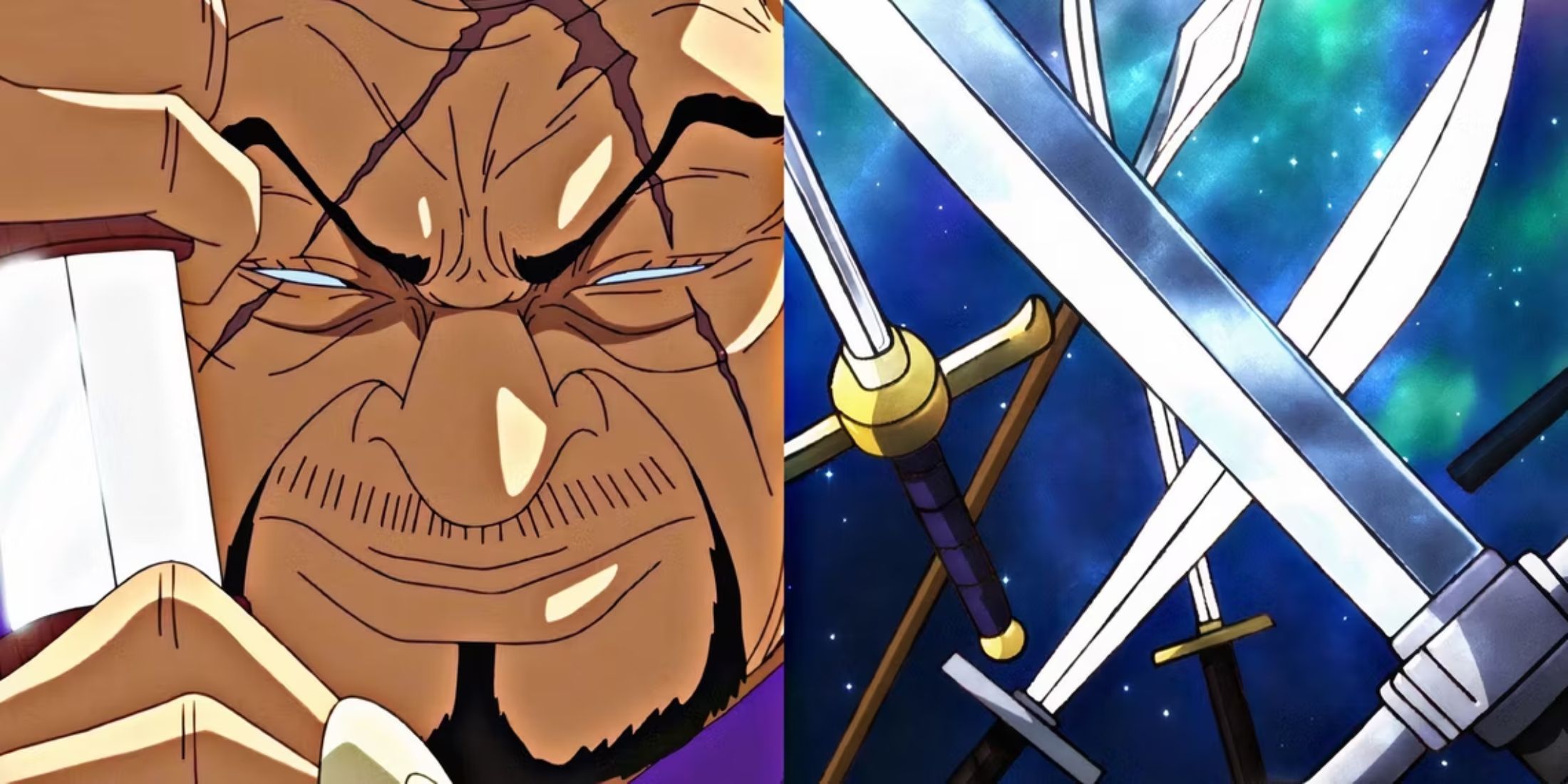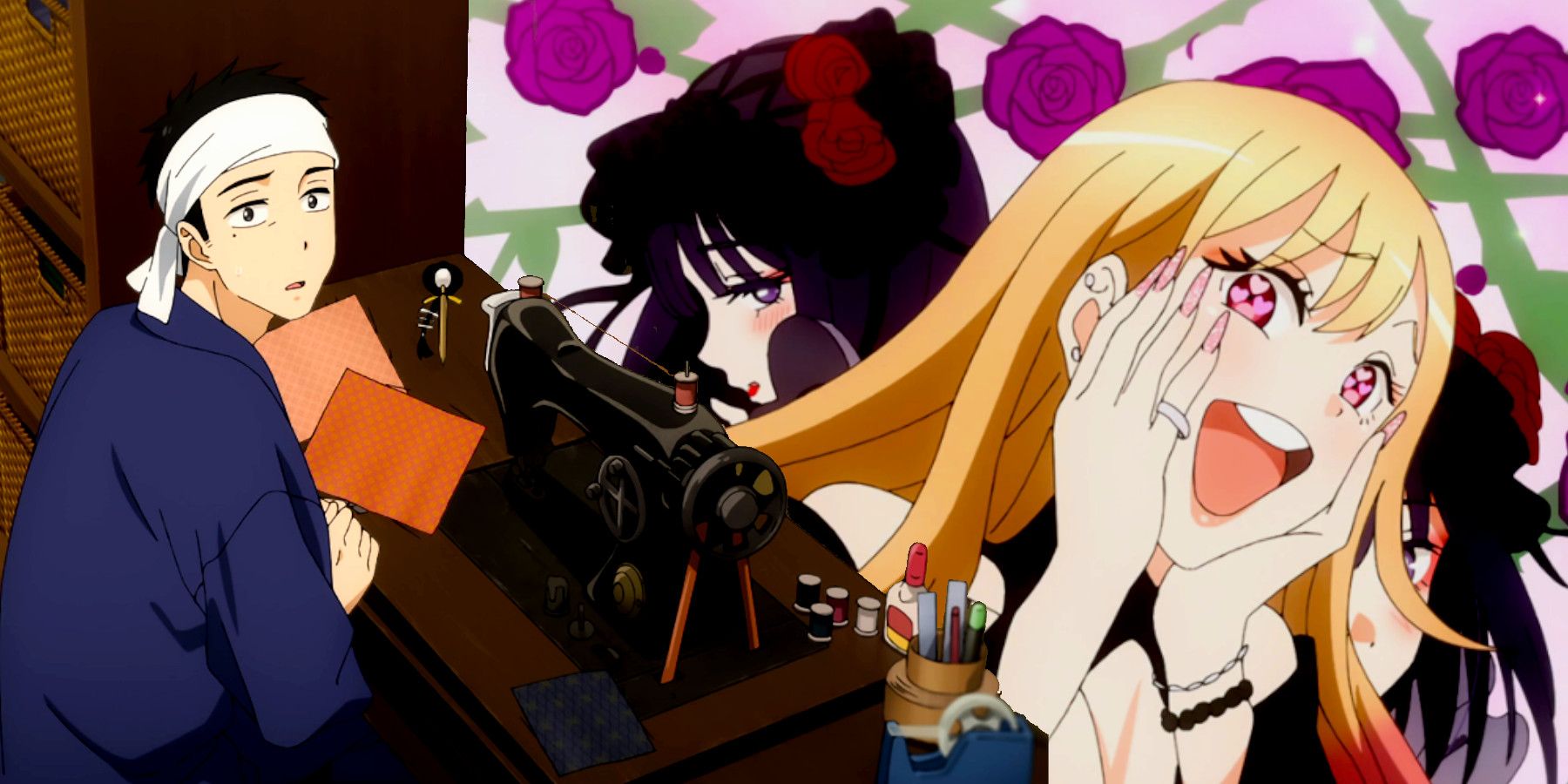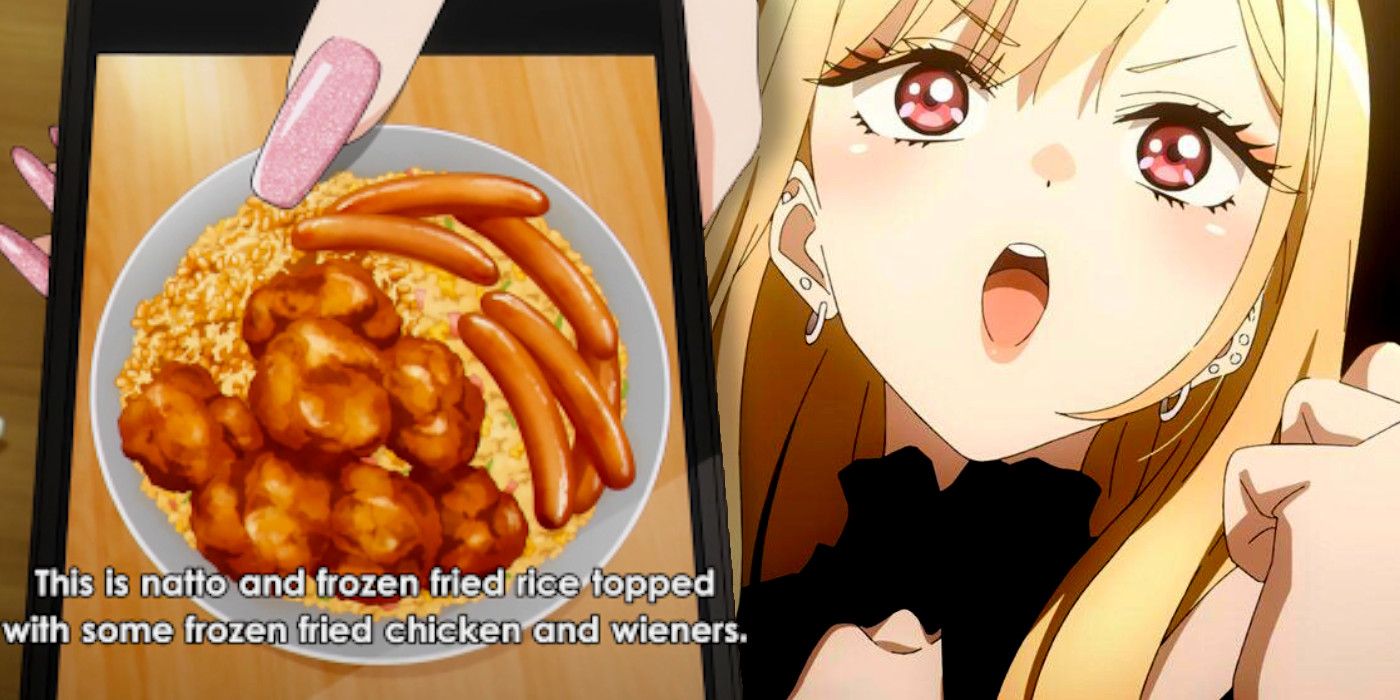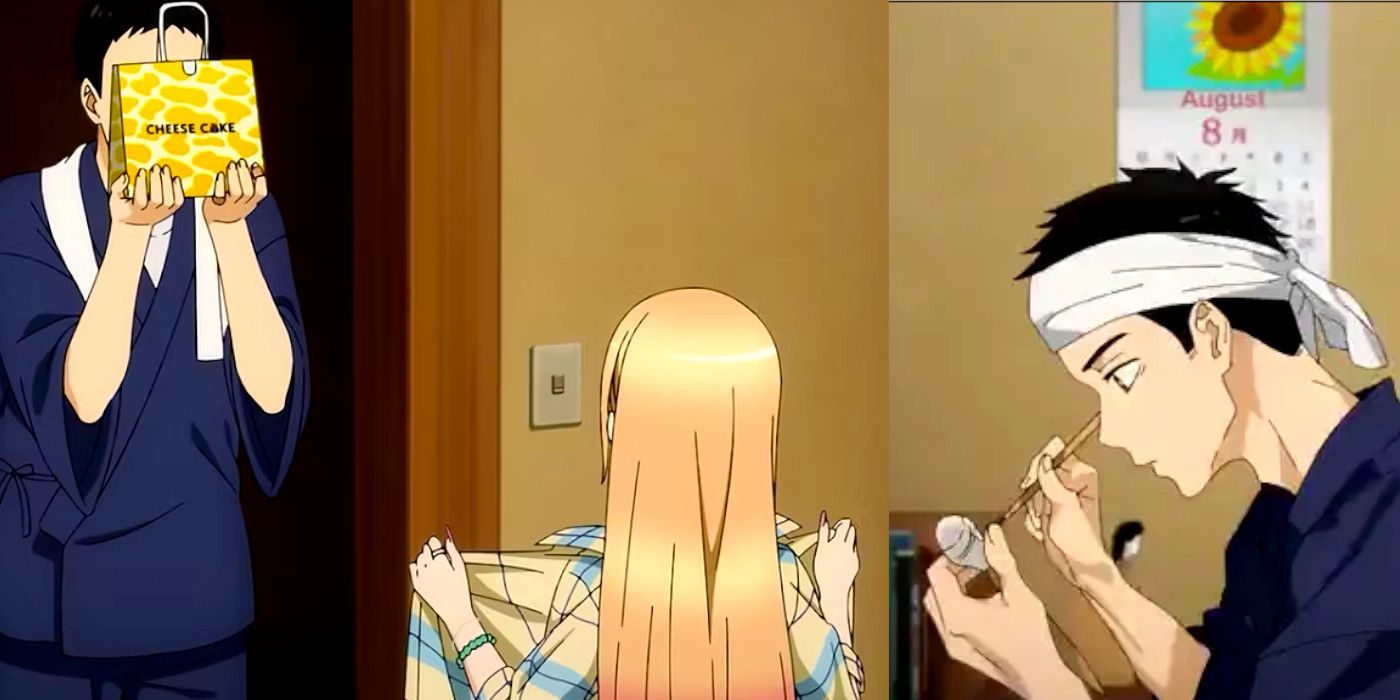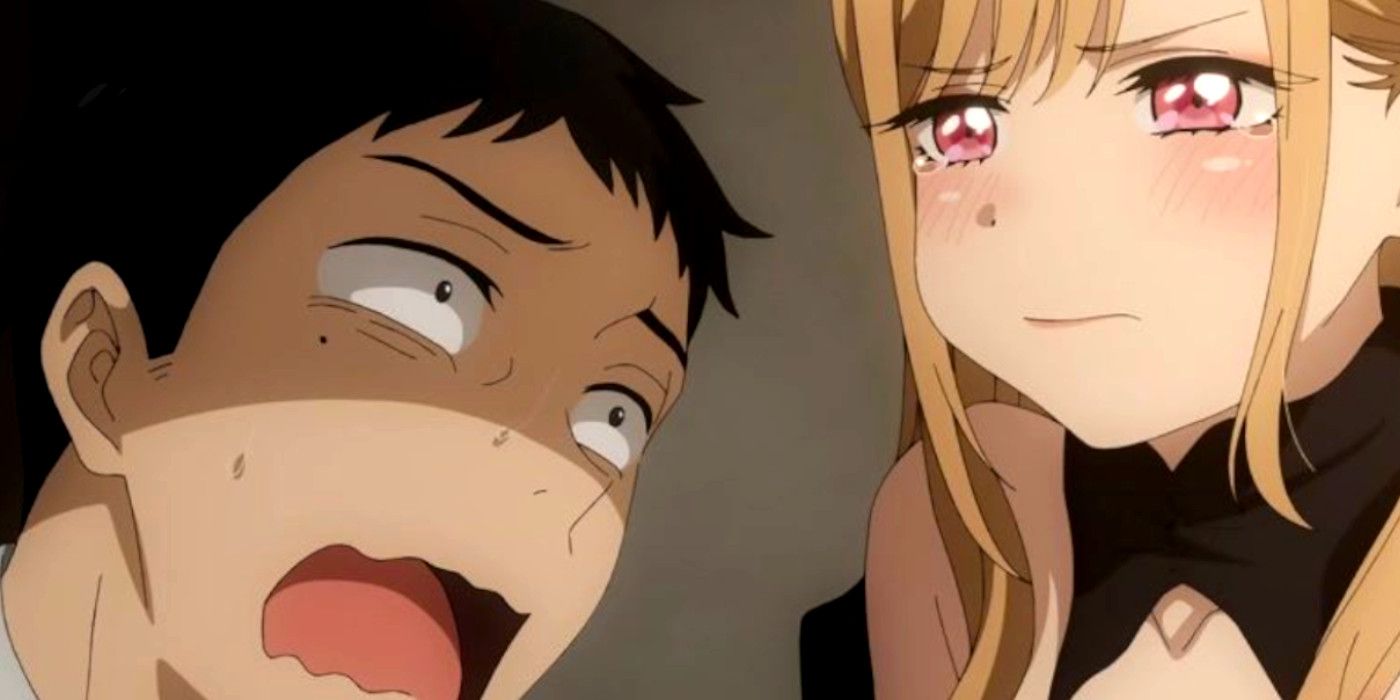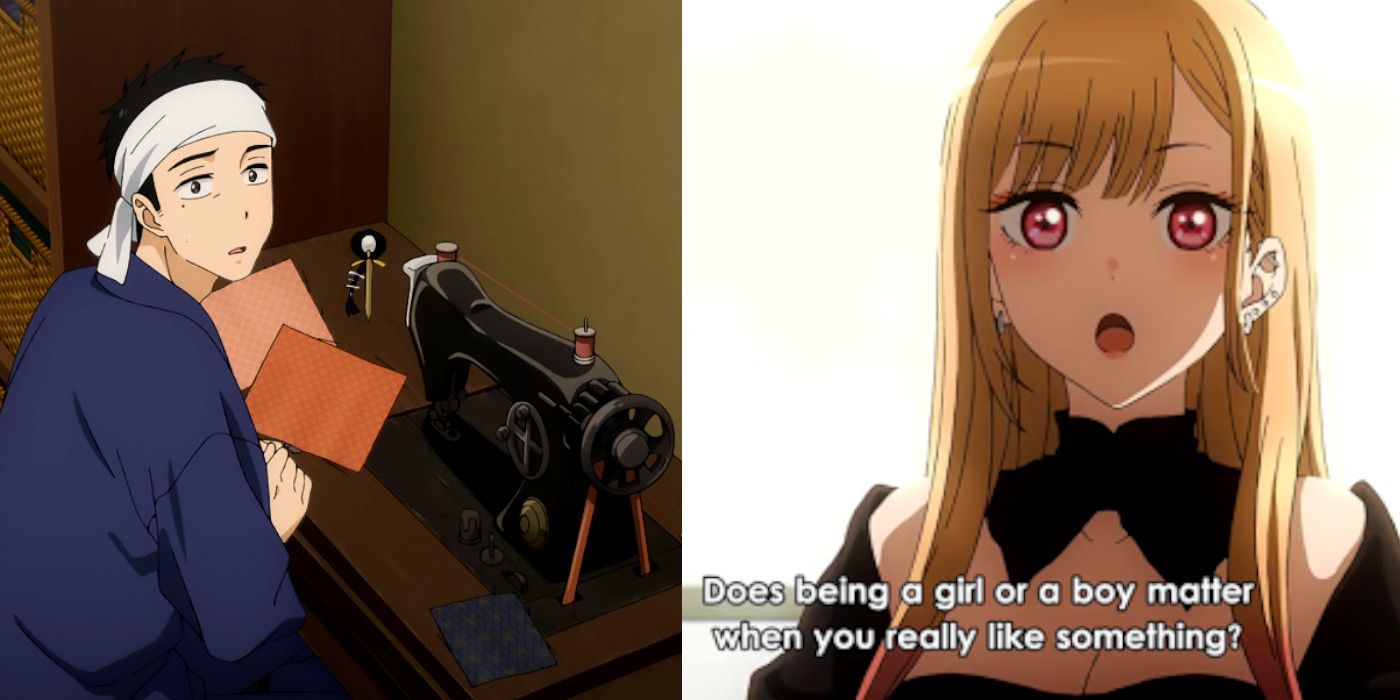While the aesthetic artwork and witty dialogue might draw most viewers into My Dress-Up Darling, many stay for the compelling storyline (and yes, the waifu factor is undeniable). Wakana Gojo and Marin Kitagawa are not typical teenagers, but even though they stem from opposite poles of the social spectrum, they find commonality in living their lives with the utmost passion.
What makes them so weird? Their inability to conform to gender norms and opting to branch out into alternative interests that are not suitable by society's standards. When a raunchy otaku and a timid tailor eventually cross paths, Gojo and Marin learn to embrace the things that make them different and celebrate their individuality instead.
Act Like A Lady (Think Like A Man)
Marin may be one of the most popular students in school, but she is in no way your average teenage girly girl, despite first impressions. Marin brings the hot factor to the otaku culture, proving that an obsession with all-things-anime is not "nerdy" as previously assumed. With her charm, charisma, and stunningly good looks, it is unlikely that anyone would tease Marin, even though she spends all her free time reading manga, playing video games, or watching Anime.
Although otaku hobbies are not exclusively for boys, the content that Marin is most passionate about is generally considered to be male-orientated, featuring over-sexualized characters and extremely erotic storylines. While she may enjoy her Shoujo and Magic Girls, the majority of what Marin deems top-quality would likely disturb any respectable lady. However, this female objectification does not bother Marin in the slightest, as she goes out of her way to personify her sultry heroines with elaborate cosplays, fulfilling her one true passion in life.
Marin's complete inability to sew does shock Gojo at first, but he manages to dismiss this flaw quite quickly. He finds more difficulty, however, in coming to terms with his friend's cooking skills, which are disastrous. Marin has a remarkably immature approach to the kitchen, often opting for fried, frozen food or grabbing some take-out instead. Her attempt to make a romantic meal for Gojo is a complete flop despite her best efforts, as the girl seems like a fish out of water in the housewife role.
This analysis is by no means a declaration that Marin is a failure as a woman, because when did home-making become a requirement for gender identity? With a mostly-absent father and a deceased mother, Marin has, for the most part, been left to fend for herself, and not many youngsters would voluntarily dedicate their time to improving their life skills if they had such free reign, regardless of their gender. Her approval of eroge-themed content is merely a testament to her sex-positive mentality, and should not be viewed as a defect. Embracing individuality is Marin's superpower, and hopefully, it is as contagious as her enthusiasm.
Boys Will Be Boys..?
Gojo is an aspiring kashirashi, which has led him to develop an obsessive devotion to anything Hina Doll-related. Sadly, his passion has had negative side effects, as Gojo would rather spend time with these porcelain beauties than form connections with real people (although, who could really blame him?) Gojo displayed a strong admiration for Hina Dolls from a very young age and was relentlessly teased for his passion, leaving the adolescent boy emotionally scarred. Hina Dolls are traditionally made for young girls to enjoy (although ironically, the most respectable kashirashi are generally male.) Gojo subsequently trades playing games with friends for practicing painting the dolls' faces, in an attempt to mirror his grandfather's skills one day.
When Gojo is not painting his muses or doing their hair, he can be found with a needle and thread, sewing elaborately designed, miniaturized clothing for the Hina Dolls. Fortunately, Gojo makes use of the school's sewing machines, which is where he happens upon the lovely Marin, and the world of contemporary cosplay is suddenly exposed to him.
Gojo's fashion knowledge is put to the test as he increases the scale of his clothing production, but the young man evidently has a deep understanding of materials, stitching, layering, and draping, which is incomparable to Marin's meager attempts.
The fact that Marin has grown up without a maternal figure becomes glaringly obvious when she struggles with other tasks that young teenage girls generally excel at perfecting: make-up. Although she has much more experience in the cosplay industry, Gojo is much quicker to pick up the techniques of using face contouring tape, and even owning his own sets of false eyelashes. He teaches Marin how to properly care for her wigs and even impresses the young girl with his talents in the kitchen when she discovers that Gojo prepares complex traditional dishes on a regular basis.
Double Standards
It appears that society's treatment of the non-conformist does not involve a neutral rejection, as Gojo and Marin are treated quite differently for their gender-bending hobbies. While Marin may be considered by most to be a bit of an odd-ball and teased on the rare occasion for her otaku habits, overall she is still accepted by her classmates, quirks and all. In stark contrast, Gojo is relentlessly bullied and made to feel inferior for his "feminine" ways and is subsequently cast out of his peer group. Gojo does not attempt to reestablish any social connections and spends most of his childhood either in solitude or with his grandfather, which has detrimental effects on his social skills and mental health too.
Society's choice to either reject or accept these young souls could boil down to several factors, the most likely being sex appeal. The fact that Marin's physique is worthy of a modeling career (which she has), whereas Gojo's bulking form is not typical of the average Japanese stature, cannot be purely coincidental in their re-establishment into the realms of acceptable. In general, people seem more willing to tolerate another's "faults" if that individual is easy on the eyes, particularly if there is a potential for sexual gratification at the end of everything. The less-attractive entities are apparently easier to shun to one side and forget, being too atypical to fit smoothly in anyways.
The cosplay-enthusiast has a personality type that reflects the eroge content she so admires, as Marin seduces everyone with her charm and friendly demeanor (and risque clothing choices.) Gojo, on the other hand, displays qualities that could suggest he falls within the autism spectrum, making the young man less relatable to most of his peer group. His lack of social skills apparently makes it easier for society to cast Gojo out, and his love for dolls might have just been the catalyst that they looking for. Mocking a young child, or anyone for that matter, because of their enthusiastic passion can clearly have long-lasting effects, and besides, why should only the "pretty people" have all the fun?
Battle of the Sexes
Some of the most respectable fashion designers and chefs are men, so why does society still have such high standards for all women to succeed at such tasks? And why should a man be shamed for enjoying the "feminine" hobbies previously allocated to women? The major message in My Dress-Up Darling is to embrace one's passions, regardless of what society dictates because at the end of the day, conforming to such outdated stereotypes will only bring misery and despair to one's existence.
While the introduction of the non-binary concept may be a controversial topic for some and sensationalized by others, the acceptance of gender fluidity is a step towards destroying gender stereotypes, potentially for good. Labeling an individual as male or female may have biological validity, but further, than that, the importance of gender association is either self-inflicted or imposed upon people by society. Gender should in no way determine an individual's favorite color, hobby, or clothing style, nor their profession, income potential, sexual orientation, or right to their own body. The 1800s are long in the past, if only society would update their mindsets as often as they do their Apple or Android software.

